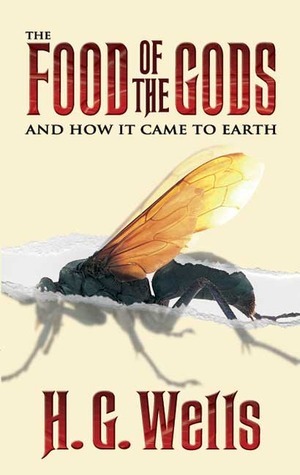
The Food of the Gods and How It Came to Earth
Book Description
A groundbreaking discovery promises to unleash a feast of unimaginable proportions, but the consequences may be more than humanity can handle. As scientists harness the power of a mysterious grain that accelerates growth and amplifies food production, chaos erupts, pitting ambition against morality. Relationships fracture under the weight of greed and fear as the world grapples with the implications of this newfound abundance. Tensions rise, and allies become enemies in a race to control the ultimate power. Can humanity wield this gift without succumbing to its darker impulses, or is it destined to consume itself?
Quick Book Summary
"The Food of the Gods and How It Came to Earth" by H.G. Wells is a science fiction classic exploring the unintended consequences of human scientific ambition. The story follows two scientists, Mr. Bensington and Professor Redwood, who develop a mysterious substance called Herakleophorbia IV, or "the food of the gods". Meant to spur massive growth in crops and livestock to solve world hunger, the substance causes uncontrollable gigantism in plants, animals, and even people. As society grapples with the dangers and fears stemming from these immense creatures, divisions arise. Greed, fear, and power struggles threaten to tear communities apart. The book uses this fantastical premise to delve into themes of progress, responsibility, the unpredictability of technological advancement, and humanity's ongoing struggle to control the forces it unleashes.
Summary of Key Ideas
Table of Contents
The Perils and Responsibilities of Scientific Progress
The narrative begins with Mr. Bensington and Professor Redwood's groundbreaking discovery: a chemical compound that induces unchecked growth in living organisms. Initially intended to enhance agricultural output, the substance quickly proves dangerous as oversized chickens, wasps, and rats escape into the English countryside. The scientists struggle to contain the effects as the food of the gods spreads beyond their control, symbolizing the unpredictability inherent in technological innovation.
Society's Fear and Resistance to Change
As the substance wreaks havoc, public opinion splits over its usage. While some dream of unlimited abundance, most react with alarm and horror at the unnatural results. Giant animals terrorize rural communities, and eventually, children given the substance grow into colossal humans. The government intervenes, attempting to ban and suppress the food, revealing deep societal anxiety towards change and fear of the unknown. These reactions mirror the broader challenges faced by societies confronting disruptive technologies.
Unintended Consequences of Human Ambition
Powerful figures and opportunists seek to exploit the food of the gods for personal gain. The quest for control leads to corruption and betrayal among early supporters. Commercial interests and political authorities attempt to monopolize or destroy the substance, pitting greed and ambition against ethical responsibility. This struggle illustrates the moral dilemmas posed by transformative discoveries, as well as humanity’s propensity to let self-interest dictate their actions.
Greed, Power, and Morality in the Face of Innovation
The growing tension culminates in open conflict between the “giants”—those affected by the food—and ordinary humans determined to eradicate them. Wells uses this conflict to explore the nature of human identity and the resistance to evolution. The giants, despite their physical power, are outcasts and face existential threats from those who refuse to accept change. Through their plight, Wells questions whether humanity can truly embrace the progress it initiates, or if it is doomed to turn against its own creations.
Human Identity and the Nature of Growth
Ultimately, "The Food of the Gods and How It Came to Earth" serves as a cautionary tale about unchecked progress. Wells underscores the obligation that comes with scientific knowledge and innovation. Blending speculative fiction with social commentary, the novel challenges readers to consider the costs of ambition, the dangers of stifling change, and the enduring conflict between fear and hope for a better future.
Download This Summary
Get a free PDF of this summary instantly — no email required.





